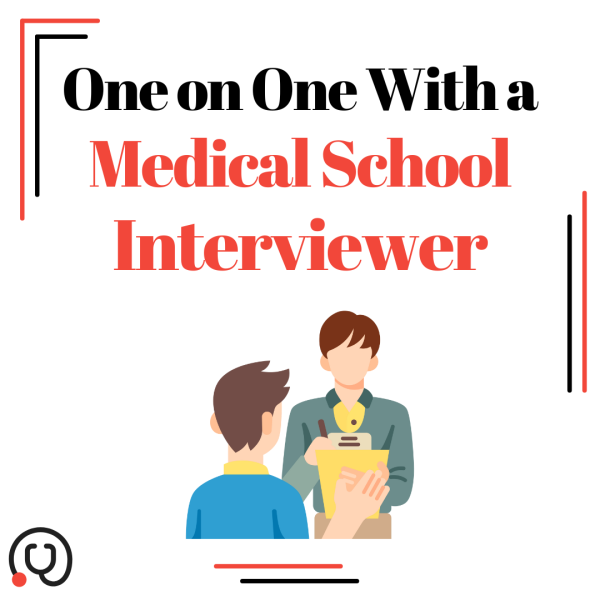One-on-One With a Medical School Interviewer

4 months ago by Rob
I was fortunate enough to have jumped through the hurdles that lie on the way to medical school, and there are quite a few benefits on the other side. I was fortunate in being able to talk to someone who had previous experience as an interviewer. The following is an excerpt from a conversation I had with a past interviewer to understand what they are looking for in medical interview candidates.
As a community member, are you concerned about the medical/dental focus of some of the scenarios?
"The scenarios in the MMI (multiple mini interview) have been carefully vetted to ensure that they focus on issues of professionalism. Some of them inevitably have a clinical flavour, but we are not testing technical medical or dental understanding. Rather, we're looking at, for example, an understanding of the ethical issues arising. The candidate may have just finished high school, so we are only looking at their values and professionalism."
Do you believe that some students can fake it in the interviews?
"We can never really know people's underlying attitudes. I can only observe their behaviour. Candidates who have gone through the MMI process have told me it is difficult to maintain an attitude which is not genuine, as the scenarios are so varied. Likewise, the interviewers are varied. There are most often no easy answers to the scenarios; we are more interested in their line of reasoning. Some candidates will have been coached. We like the idea of candidates reading about, or being coached in, matters of professionalism before they come to us."
What happens if your candidate finishes before the time is up?
"It may well happen that all of the necessary information has been collected within the allocated time. I usually tell them that all the questions have been asked and the interview has concluded. However, seeing that the candidate must remain within the room until the bell goes, I ask them if there is anything they would like to add. Likewise, if the bell has sounded, the interview must end immediately even if we haven't completed."
If candidates score an unsatisfactory in one of the checklist items, do you fail them?
"Scoring unsatisfactory in one checklist item does not mean the candidate has failed. Doing well in other sections can compensate for a poor score in one section. For those familiar with assessment, this is called context specificity, and I think it's a good way to allow candidates to make up ground. However, if a candidate says or behaves in a way that raises serious concerns, we make a note and it's up to the Chair of the Admissions Committee to take appropriate action."
Are you told if the student in front of you is a dental or a medical candidate?
"Because we are testing generic skills, it doesn't matter whether the candidate is dental or medical. Their MMI score will be considered in the context of the particular course and type of place they have applied for."
Have you or fellow interviewers ever improvised questions?
"I tend to stick to the script initially and may follow up with natural conversation. But I have heard of candidates reporting to the admissions staff and the academic supervisor if they feel that they have not had a fair go."
Can the interviewers be biased?
"During training of interviewers, the university specifically mentions the need to be unbiased and not bring any preconceived views against any groups. However, just because the university wants an objective scoring system doesn't necessarily mean it always gets one. But most interviewers are fair and are non-discriminatory in their scoring."
Can you tell if the answers are preprepared or rehearsed?
"The only way we suspect that is happening is if the student does not answer the question. If they answer the question they are asked and in a passionate way, we can never tell if they were prepared or if the student was able to think on their feet quickly and come up with a coherent response. Even if we do suspect that the answers may have been rehearsed, we have to give the candidates the benefit of the doubt."
I hear that some interviewers are friendly and chatty while some are disinterested. Is this deliberate?
"All interviewers are told during training that we have to be polite and professional. Again, the university wanting interviewers to behave in a certain way does not automatically make them so. They have their own personalities and commitments, and it may affect how they behave on the day."
What type of candidate comes across well in an interview?
"Those who are engaging, confident, and perceptive. We are never sure whether it's due to preparation, practice, or because they are naturally quick thinkers. Even if we suspect it is due to practice, it's not necessarily a negative since it shows motivation."
More information about the interviewer’s perspective and what they are looking for in medical interviews is provided in MedEntry’s medical interview training package.


